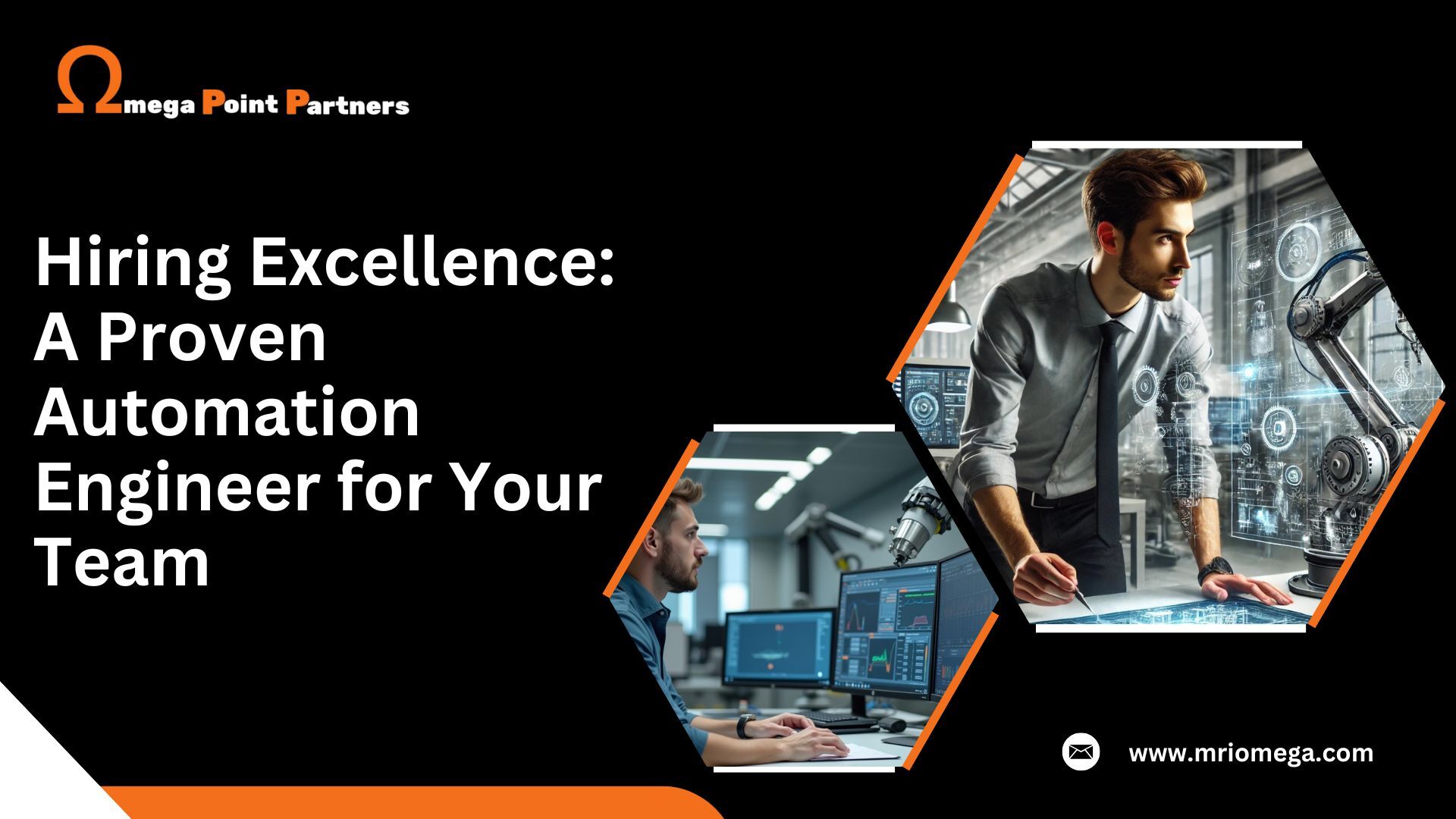Hiring Excellence: A Proven Automation Engineer for Your Team

In today’s fast-paced technological landscape, businesses rely on automation to streamline operations, enhance efficiency, and reduce costs. To achieve these objectives, hiring a skilled Automation Engineer is crucial. A proficient engineer can design, implement, and optimize automated systems that drive productivity and innovation.
The Role of an Automation Engineer
An Automation Engineer is responsible for developing and maintaining automated solutions that enhance processes across various industries, including manufacturing, software development, and IT operations. Their expertise spans programming, robotics, artificial intelligence, and data analysis, making them invaluable assets to any organization.
Key Responsibilities
- Designing Automation Solutions – Developing and implementing automation frameworks tailored to business needs.
- Optimizing Efficiency – Identifying areas for improvement and deploying solutions that reduce manual effort.
- Testing and Maintenance – Ensuring automated systems function seamlessly through rigorous testing and continuous updates.
- Integration with Existing Systems – Enhancing workflow by integrating automation with current software and hardware.
- Compliance and Security – Ensuring that automation processes adhere to industry standards and cybersecurity protocols.
Qualities of a Proven Automation Engineer
Hiring an exceptional Automation Engineer requires assessing technical expertise, problem-solving skills, and adaptability. Here are the key qualities to look for:
1. Technical Proficiency
A top-tier engineer must be an expert in programming languages such as Python, Java, or C++ and have experience in automation tools like Selenium, Ansible, or UiPath.
2. Analytical and Problem-Solving Skills
A strong ability to analyze complex systems and develop efficient automation strategies is essential for success in this role.
3. Adaptability and Continuous Learning
Technology evolves rapidly, and a skilled engineer stays ahead by learning new tools, frameworks, and industry trends.
4. Attention to Detail
Precision is critical when developing automated systems, as even minor errors can lead to inefficiencies or malfunctions.
5. Strong Communication and Collaboration
An automation engineer often works with cross-functional teams. Clear communication and teamwork are essential to ensure smooth implementation.
The Benefits of Hiring an Automation Engineer
Bringing an Automation Engineer on board offers numerous advantages:
- Increased Productivity – Automation reduces manual workload, allowing employees to focus on strategic tasks.
- Cost Savings – Efficient processes minimize operational costs and resource wastage.
- Enhanced Accuracy – Automation eliminates human errors, ensuring precision and consistency.
- Scalability – Automated solutions grow with the business, adapting to increased demands effortlessly.
Conclusion
Hiring a proven Automation Engineer is a strategic investment for any organization aiming for efficiency, innovation, and competitiveness. By selecting a professional with the right expertise and qualities, businesses can unlock automation’s full potential and stay ahead in the digital era. If you’re looking for excellence in automation, choose a candidate with a strong technical background, problem-solving abilities, and a commitment to continuous learning.
Find your next Automation Engineer here: https://mriomega.com/index.php/game-changers/